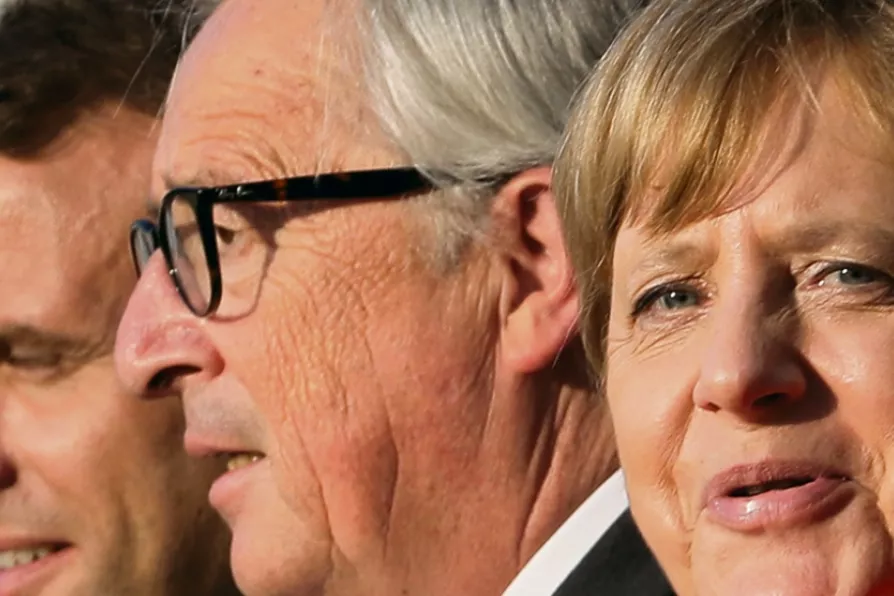Speakers in Berlin traced how Germany’s rearmament, US-led violence abroad and the repression of solidarity at home are converging in a dangerous drive toward war. BEN CHACKO reports
European leaders are at loggerheads – but not in the way you might think
There is agreement between liberal and far-right 'populist' EU leaders over strengthening the repressive Fortress Europe measures against refugees and asylum-seekers. They just disagree about how to do it, writes KEVIN OVENDEN

 CRISIS MANAGEMENT: French President Emmanuel Macron, European Commission President Jean-Claude Junker and German Chancellor Angela Merkel
CRISIS MANAGEMENT: French President Emmanuel Macron, European Commission President Jean-Claude Junker and German Chancellor Angela Merkel
A dozen European leaders are to meet at an informal crisis gathering in Brussels on Sunday.
That’s two years to the day since the results of the UK referendum piled up showing people had voted to leave the European Union.
We were told then, and conventional wisdom has repeated it since, that the process would pit a fractured British government against a united bloc of the remaining “EU27.”
Similar stories

The left must confront both far-right bigotry and the undeniable problems the exploitation of migrant workers by the ruling class creates — but there are few lessons from the global left on how to strike this balance, laments NICK WRIGHT

In the recent federal elections the far-right AfD was able to reach sections of the working class on issues over which the left is divided and unable to articulate a coherent position, a situation that is replicated in a number of other European countries, argues NICK WRIGHT

The proxy war in Ukraine is heading to a denouement with the US and Russia dividing the spoils while the European powers stand bewildered by events they have been wilfully blind to, says KEVIN OVENDEN

You only have to look at the dire polling of Labour’s sister parties in Europe to see that aping the hard right on migration leads to spectacularly bad results, argues DIANE ABBOTT MP










